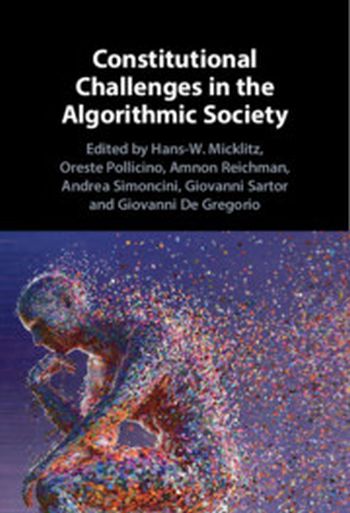
New technologies have always challenged the social, economic, legal, and ideological status quo. Constitutional law is no less impacted by such technologically driven transformations, as the state must formulate a legal response to new technologies and their market applications, as well as the state's own use of new technology. In particular, the development of data collection, data mining, and algorithmic analysis by public and private actors present unique challenges to public law at the doctrinal as well as the theoretical level. This collection, aimed at legal scholars and practitioners, describes the constitutional challenges created by the algorithmic society. It offers an important synthesis of the state of play in law and technology studies, addressing the challenges for fundamental rights and democracy, the role of policy and regulation, and the responsibilities of private actors.